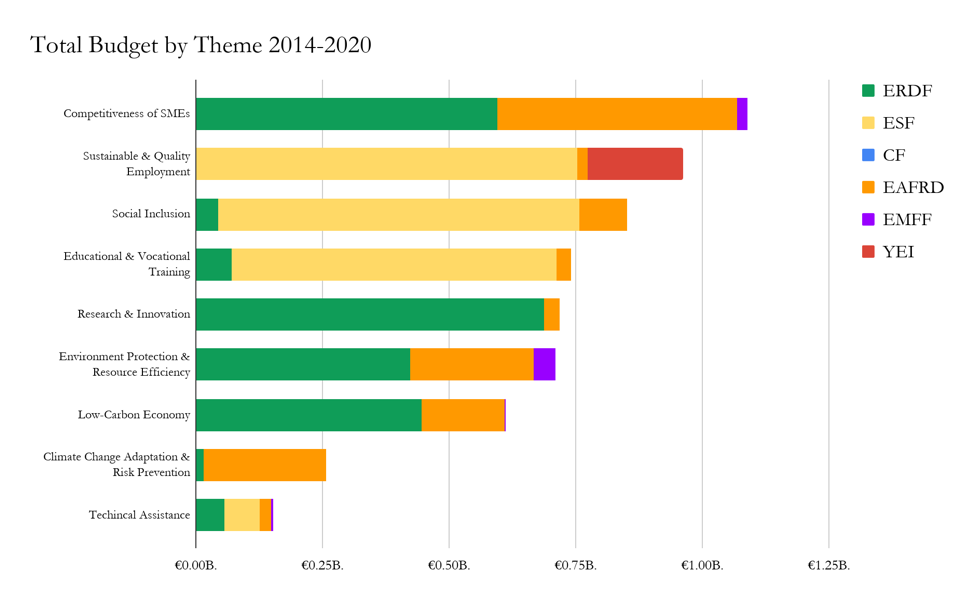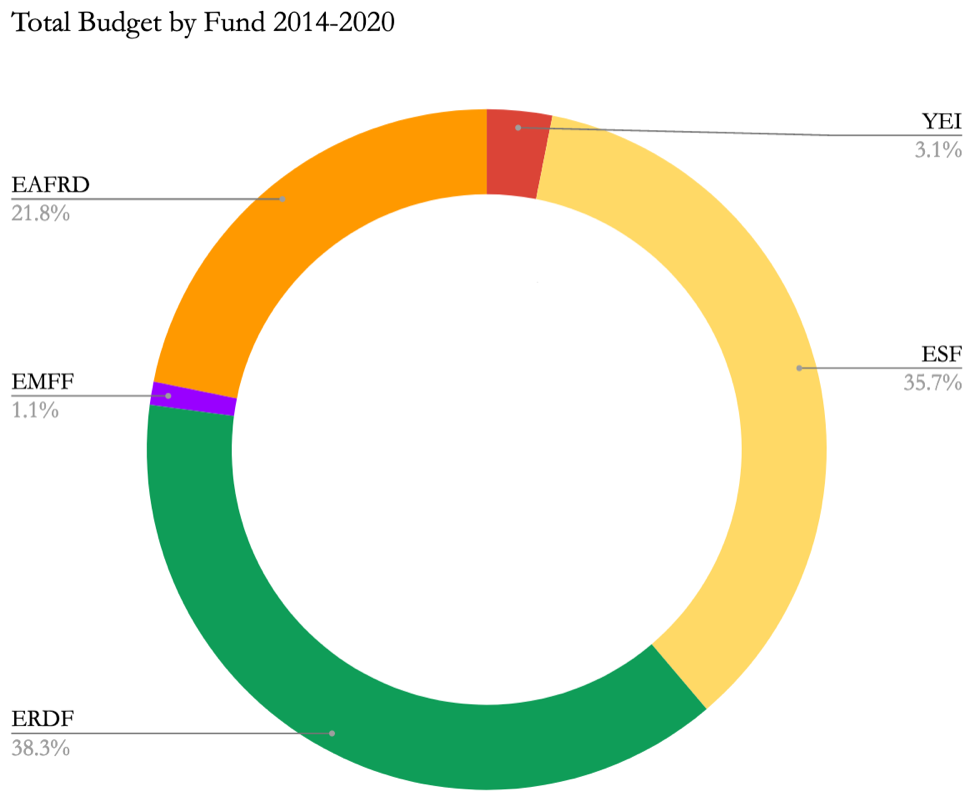News
Country Profile | Belgium

The Kingdom of Belgium has been allocated €2.7 billion from ESI Funds over the current 2014-2020 financial framework, a budget that mounts up to €6 billion thanks to the national contribution of €3.3 billion that the country invested.
This budget is designed to support Belgium’s socio-economic development, and is intended to be used through 10 national and regional programmes to:
- Promote an innovation-friendly business environment to make SMEs more competitive, improve innovation and research performance, and stimulate the growth of the e-economy;
- Focus on developing synergies between businesses, R&D centres and higher education;
- Boost human capital growth and build up labour market participation by improving education at all levels;
- Promote social inclusion and help the most vulnerable groups to find work;
- Encourage the sustainable and efficient use of natural resources and support the shift toward a low-carbon economy, particularly through investment in energy efficiency, especially decarbonising the transport sector;
- Support the transition to more sustainable fisheries and aquaculture, improved marine ecosystems and aquatic biodiversity;
- Modernise farming through sustainable agriculture practices and ecological land management.
Belgium’s main theme of investment for the 2014-2020 financial framework is the enhancement of the competitiveness of Belgian small and medium enterprises: for this target, the European Regional Development Fund (ERDF), the European Agricultural Fund for Rural Development (EAFRD) and the European Maritime and Fisheries Fund (EMFF) have assigned respectively €600 million, €570 million and €20 million, amassing a total budget of €1.1 billion. Special attention is paid by the Belgian government to the creation of sustainable and long-lasting jobs for all social groups. To reach this objective, the European Social Fund (ESF) has allocated €750 million, that added to the Youth Employment Initiative (YEI) and EAFRD contributions (€190 million and €20 million), form a total budget of more than €900 million.

The chart above shows how promoting social inclusion is a top priority for Belgium.
In fact, the ESF, EAFRD and ERDF together are investing more than €750 million, with the ESF owning the largest share (more than €700 million). Together with the establishment of education and vocational training centres, for which the total allocated budget is around €730 million, the three aforementioned funds want to boost human capital growth and build a strong and inclusive labour market.
The chart below shows how the overall budget for the 2014-2020 financial framework is characterized by two major sources of funding, the European Regional Development Fund (ERDF) and the European Social Fund (ESF).

With 38.3% of the total budget, the European Regional Development Fund (ERDF) is the largest contributor to European funding in Belgium, granting €2.3 billion alone, distributed in all the important themes of investments of the Belgian agenda. The second largest contributor is the European Social Fund (ESF), that accounts for 35.7% and a total of €2.1 billion being invested in creating new jobs, upskilling workers and promoting social inclusion between different social groups. The European Agricultural Fund for Rural Development (EAFRD) has a total share of 21.8% and €1.3 billion being invested in all of Belgium’s themes of investments. The Youth Employment Initiative (YEI) contributes with just €190 million and has a 3.1% share. With only 1.1% the European Maritime and Fisheries Fund (EMFF) is granting Belgium less than €100 million to be used in increasing the competitiveness of SMEs in the aquaculture business.
As of September 2019, the absorption rates of Belgium are higher than the European Union average, showing that the country is performing well when it comes to EU funding. With a 31% share of spent funding from the European Structural and Investment Funds, Belgium is 3% above the European average of 28%, meaning that more than €1.8 billion have already been invested. Belgium is also very effective when it comes to assigning funds, as the country has allocated 83% of its total budget, 18% above the EU average of 65%, meaning that €5 billion have been assigned to projects and other initiatives.
In conclusion, the Kingdom of Belgium is registering great performances in terms of planned, assigned and spent funds, confirming the evidence that the country is among the leading EU members regarding European funding absorption rates.






